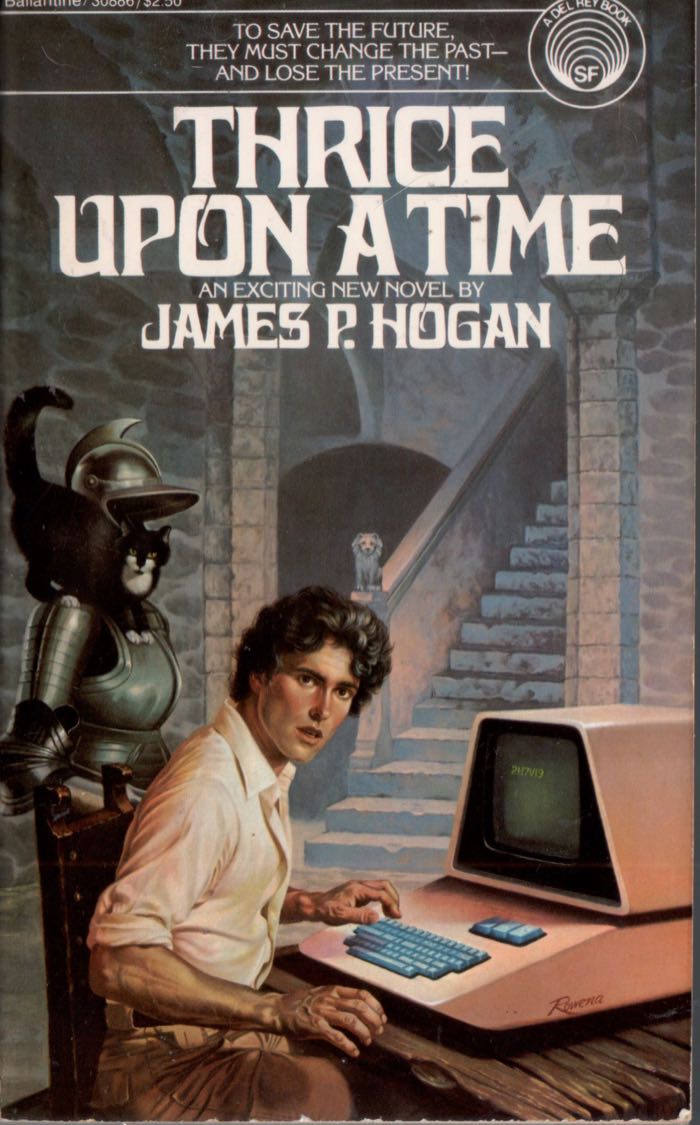Thrice Upon a Time
Reviewed date: 2004 Aug 30
Rating: 3
310 pages
Why do I subject myself to the torture of time travel novels? Maybe I hope to get lucky and find the one good time travel story in the pile of dreck this subgenre has produced.
This time I nearly struck gold.
Thrice Upon a Time is the best time travel novel I have read. James Hogan is meticulous in his science, and he offers a convincing explanation of the nature of time. He even manages to explain the apparent paradoxes. His is an intriguing model of time travel, although too detailed, dull, and theoretical to interest most casual readers. Only serious-minded science fiction fans will read dozens of pages where the only action is scientists sitting around a room discussing the nature of time amongst themselves.
The science in Thrice Upon a Time is head and shoulders above other time travel novels. The plot is relatively simple on the face of it: a group of scientists develop a machine that sends messages through time. They send messages back and forth to their future and past selves, and in the end manage to use the machine to save the Earth from certain destruction not once, but twice. (Don't ask me where the thrice part of the novel title comes from. Maybe they saved the world again while I wasn't looking.)
The novel has serious flaws, however. Mr. Hogan seems to forget why fans read science fiction. Here's a hint: it's not for the pages-upon-pages of beautiful description of the Scottish countryside. And while I appreciate the depth and rigor of the science in the novel, it generally helps if the plot starts sometime in the first 130 pages. The sooner the better. You can work the science in later, you don't have to dump 100+ pages of science on the reader before starting the rest of the story.
If the whole novel were as good as the last two-thirds, I would rate the novel a four. But 130 dull pages to start the novel is too great a flaw; after 100 pages I nearly stopped reading. So Thrice Upon a Time rates a three. I do not recommend it--not because the book isn't an enjoyable read in the end, but because it takes too much effort to make it through the first 100 pages.
